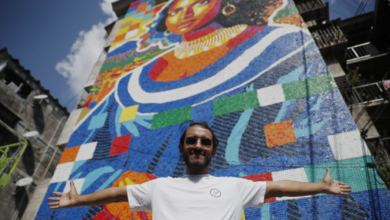Inspiring Black Women Who Make Real Changes
For ethnic communities and the majority of excluded communities, the current confinement is not the only challenge they have faced throughout their lives. Poverty and forced displacement are some of the problems that have plagued the black community.

The Woman Post | Carolina Rodríguez Monclou
Listen to this article
In the context of COVID-19, the media have recognized that structural racism is one of the most important challenges on the global agenda at the same level as the climate crisis and violence against women and girls.
Each of these issues has inequality as a determinant, and Afro-descendant communities are at the center. Fortunately, many black women leaders are working to change this.
UN Women recognizes the following activists as true leaders who have helped thousands of women and girls confront violence and inequality.
Tarana Burke
Honored as one of Time 100 Magazine's Most Influential People, Tarana Burke is the Me Too movement founder. Most people found out about the Me Too movement after the New York Times published an article on October 5, 2017, detailing Harvey Weinstein's decade of sexual abuse of women. The activist has been using Me Too to create a space to support and amplify survivors' voices through organizing, workshops, and social media.
Vanessa Nakate
For more than a year, Vanessa Nakate has organized individual strikes in Kampala, the Ugandan capital, to protest against climate inaction. She told TRT World, "When I realized that communities are facing the impacts of climate change right now, I decided to start my climate activism." The activist follows the example of Swedish teenager Greta Thunberg, who encouraged millions of young people worldwide to take action every Friday against this problem.
Also read: 11 Latinas on the Global List of the Most Inspiring and Influential
Jaha Dukureh
Jaha Dukureh is known worldwide as the woman who said no to female genital mutilation (FGM) through her Safe Hand for Girls' foundation, which makes this problem visible and shelters survivors. She is the UN Women regional ambassador for Africa and was nominated for the Nobel Peace Prize for her work against female genital mutilation and child marriage. Her voice is so strong that she has managed to change the law. In 2016, the Gambian President banned female genital mutilation, earning young Jaha great recognition.
Emanuela Paul
Emanuela Paul is the Rethinking Power program coordinator with Beyond Border. The goal of this movement is to eliminate violence against women and girls. The Haitian activist helps women from different communities recognize their power and how to use it. Through this program, communities reflect on their personal power dynamics and how it affects their relationships and environment.
Unity Dow
The Motswana human rights activist is the Minister of Foreign Affairs and International Cooperation in her country. The politician challenged the attorney general over the clause in his law, stating that dual citizenship is only obtained from the father. According to CGTN Africa, "Dow became the plaintiff seeking to allow the children of Botswana women married to foreigners to become Batswana. She drew attention as the fearless legal eagle."
The feminist and black movements, and the organizations of black women, started from the historical demands of visibility, respect for differences, and social inclusion and managed to open independent paths based on mutual learning to build shared agendas, despite the differences. Today, these women's voices guide and encourage action to achieve a more equitable and just world.




